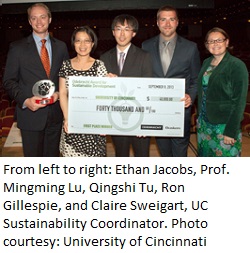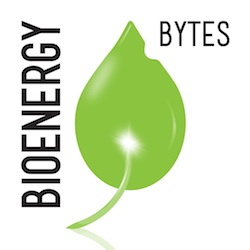 A student team from the University of Cincinnati is being recognized for their idea to capture waste grease and turn it into biodiesel. The school’s Team Effuelent, led by students Ron Gillespie, Ethan Jacobs, and Qingshi Tu won the $40,000 prize in the Odebrecht Award for Sustainability Development Competition with their concept of “Using Trap Grease As the Raw Material for Biodiesel Feedstock Production.”
A student team from the University of Cincinnati is being recognized for their idea to capture waste grease and turn it into biodiesel. The school’s Team Effuelent, led by students Ron Gillespie, Ethan Jacobs, and Qingshi Tu won the $40,000 prize in the Odebrecht Award for Sustainability Development Competition with their concept of “Using Trap Grease As the Raw Material for Biodiesel Feedstock Production.”
The team’s innovative Waste Grease Extraction process extracts substances such as fats, oils, and greases from the municipal wastewater stream and converts them into a low-cost biodiesel feedstock using processes compatible to the current biodiesel industry.
Not only does the WGE process generate a marketable product of value, it also results in lowered landfill costs for wastewater treatment plants and positively contributes to the environmental, economic, and energy sustainability of the United States.
Mingming Lu, associate professor in CEAS’ Department of Biomedical, Chemical, and Environmental Engineering, originally developed the novel process and serves as the team’s advisor. The students were awarded $20,000, Professor Lu receives $10,000, and another $10,000 goes to the University of Cincinnati.
Team Effuelent is now working on building a prototype system for the Waste Grease Extraction process.











